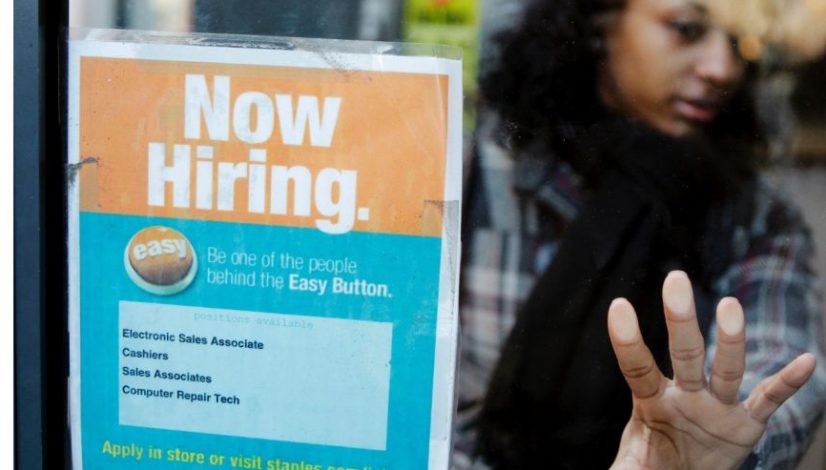Did Team Obama fudge the jobs numbers to stave off a Fed rate hike?
What a coincidence. Just as momentum was building towards an interest rate hike by the Fed, along comes a dismal jobs report that takes any increase off the table. Contrary to the general perception, this is a lucky break for Democrats.
While the paltry 38,000 jobs added in May is not good news for the White House, the embarrassment will likely be only temporary. If the June figures show a healthy rebound, voters will dismiss the disappointing report as a one-off, and will forget it by November. The opposite would be true if a Fed rate hike were to weaken the economy or even lead us into recession. Another downturn would undermine the president’s popularity and sour voters on Hillary Clinton, who is campaigning on the promise of four more years of Obama’s policies.
Suggestive of high-level concern, the New York Times, which has become the virtual mouthpiece for the Obama administration, has run not one but two editorials recently arguing against a rate hike. The economy, they say, is simply too fragile and too many Americans are still struggling to make ends meet.
The Times was responding to the Fed’s April meeting notes, in which the central bank surprised investors by saying that “it likely would be appropriate” to raise rates in June. Most observers had looked for the Fed to move later in the year; at the time of the release, markets were indicating less than a 5 percent chance of a June increase. The Fed commentary pushed that bet to 30 percent. The May jobs report put the odds back to only 3 percent.
In opposing a rate hike, the Times points to some contrary economic indicators, such as drooping service-sector growth in May and a fall-off in manufacturing, as well as a Fed study showing that fully one third of the country is “struggling to get by” or “just getting by.”
That certainly is not the message President Obama is spreading. He has been touting the slow but steady job gains recorded in recent months, and the slight increase in wages – improvements that have boosted his approval ratings. He and the Times understand it’s still “all about the economy, stupid.”
Mrs. Clinton is running on Obama’s record; keeping the economy humming and the president’s popularity at today’s levels is essential to a Hillary win in November. Obama is desperate for a Hillary victory because he knows that a Republican in the White House will demolish his unfinished agenda with immigration, climate regulations and so much more.
Given all that is stake, it is surprising that no one has questioned whether the jobs report might have been massaged by the Labor Department, which, as the New York Post’s John Crudele frequently points out, exercises considerable discretion over how it produces the figures.
This would not be the first time that suspicions have been raised about a jobs number. In October 2012, a month before President Obama stood for reelection, the unemployment rate suddenly fell sharply, to 7.8 percent from 8.1 percent the month before. The Bureau of Labor Statistics claimed that their household survey found that from September to October 873,000 people had suddenly found jobs – the biggest one-month gain in more than nine years. An incensed Jack Welch, former CEO of GE, tweeted “Unbelievable jobs numbers..these Chicago guys will do anything..can’t debate so change numbers.” Other conservative groups echoed Welch’s skepticism.
Welch later admitted he had no evidence to support the charge, and Hilda Solis rebutted such accusations, telling CNN, “This is a methodology that’s been used for decades. And it is insulting when you hear people just cavalierly say that somehow we’re manipulating numbers.” Some were unconvinced.
There have also been critics who claim that Obama has attempted to sway Fed policy. In early April, midst signs of renewed sluggishness in the U.S., Obama held a rare and hastily organized meeting with Yellen, who had days before mused about a jobs market that was “vastly improved”. Those comments sparked speculation that a rate hike could come sooner than expected. After their confab, a White House spokesman said that the president was “pleased” with Yellen; expectations of a rate hike subsided.
Such suspicions may be completely off base. Unhappily, on numerous occasions the president and officials of federal agencies like the IRS and the Justice Department have not been forthright with Americans, undermining confidence in this White House and planting seeds of skepticism.
The skepticism has been nourished by reports like those from John Crudele, who reported in 2013 what he calls “solid evidence” that the Philadelphia office of the Census Bureau cheated on collecting unemployment data. The false reporting seems to have led to more positive employment news, especially around the time of the 2012 election.
Thanks to Crudele, we know that Labor Department officials, by changing their assumptions, can jigger the employment news. This time of year, the jobs report includes estimates of company formations and deaths. For instance, the Labor Department reported 160,000 new jobs added in April. Crudele noted that April’s total “included 233,000 jobs that might not actually exist because they are based on assumptions about the number of companies that were “born” during the month and whose data couldn’t be captured in the usual way.”
On a net basis, deducting estimated jobs lost as companies went under, approximately 40,000 ”imaginary” jobs were added to the April figure by Labor Department bean counters. Crudele says “the Labor Department claims it doesn’t know the true number.” He projected about a week ago that a similar number might boost the May report; last year some 213,000 jobs were added to the totals from the birth/death estimates. Those are big numbers to throw into the mix.
Big numbers that could also be subtracted, leading to a disappointing figure like 38,000. A figure that not only disappointed, but also surprised most analysts. According to the economists at Evercore ISI, the BLS jobs number doesn’t compute with other labor market indicators. For instance, their surveys of business at employment agencies remain strong, unemployment claims are still extremely low, and city-by-city soundings of hiring remain solid.
We will know soon enough whether the May report was an accurate reading of the economy or an anomaly which proved helpful to the president and his would-be successor. If June job gains surge, unemployment claims remain low and there are no signs that employers actually cut back on hiring, some will question the likelihood of such a lucky coincidence.
Published here.




